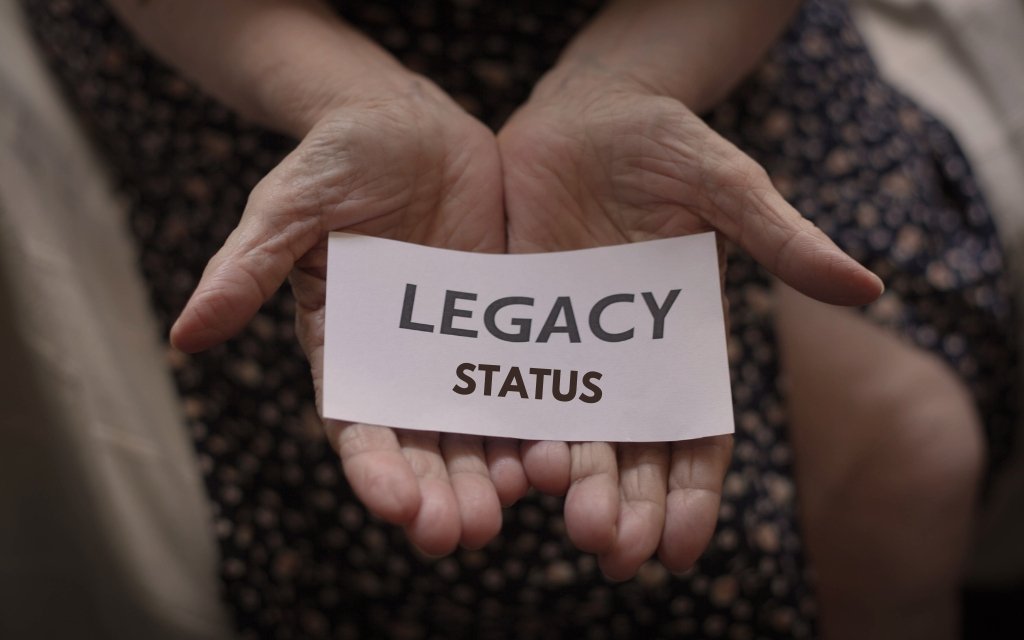Does UCLA Law Consider Legacy? Discover everything you need to know about UCLA Law’s admission policies on legacy applicants.
The million-dollar questions running through my head were: What was a good enough GPA, how much of a difference did an LSAT score really make? Most importantly, was my personal statement interesting? Of course, the biggest of those: Does UCLA Law consider legacy in their admissions process? Growing up, I knew about how some colleges weigh legacy status or a family connection to the school as an advantage in admissions. But UCLA? I wasn’t so sure.
In this article, I go in-depth on UCLA Law’s policy on legacy admissions, take you through their process, and compare that process with other schools, such as Northeastern. By the end of it, you’ll have crystal clarity on whether or not there is any correlation with regard to legacy status at UCLA Law, and what matters.
Table of Contents
Does UCLA Law Consider Legacy in Admissions?
Let’s cut to the chase: No, UCLA School of Law does not consider legacy status in its admissions process.
Unlike many private universities, which often favor applicants with alumni connections, UCLA Law is a public institution committed to merit-based admissions. The school bases its decision on academic merits, LSAT scores, personal statements, and other application components, rather than family relationships. None of these include having a parent, sibling, or grandparent who attended UCLA or UCLA Law.
Why Doesn’t UCLA Law Consider Legacy Status?
These principles of equity, inclusivity, and fairness are reflected in the broader admissions policies at UCLA Law. The school selects candidates based on their individual qualifications rather than family history. Given its status as a public institution, UCLA also strives to provide opportunities for a broad range of students, emphasizing diversity in its student body.
It does not mean that having a family link to UCLA carries no worth. The network of alumni can be helpful in providing mentorship, advice, and inspiration, but with respect to the admissions process, legacy status is not a factor.
What does UCLA Law focus on instead?

If legacy is not a factor, then what does UCLA Law really care about? Below is a breakdown of the UCLA Law School Admission Criteria:
1. Academic Excellence
Your undergraduate GPA is important in that it speaks volumes about how well you can handle rigorous coursework. UCLA Law seeks students who have an excellent academic record, particularly in demanding courses.
2. LSAT or GRE Scores
Though the institution accepts both LSAT and GRE, LSAT is still more popular. However, an excellent score can put you at an advantage, but that is not all that is considered.
3. Personal Statement
This is your chance to tell your story. Admission officials want to know who you are, what motivates you, and why you want to attend law school. Be real, be personal—I cannot say that enough.
4. Letters of Recommendation
Strong letters of recommendation from professors, employers, or mentors can provide valuable insight into your character and abilities.
5. Diversity: background and life experience
At UCLA School of Law, great emphasis is placed on the difference that one applicant can bring to others through their cultural background, life and work experience, or extracurricular activities.
6. Demonstrated Interest in Public Service
Because UCLA is a public interest-oriented law school, the admissions committee grants great emphasis to applicants who can prove a commitment towards trying to make a difference in society.
Pro Tip: If you’re really stressing that your application is going to be just like every other one, try working on weaving a story that ties together academic successes in experiences and aspirations for the future. Your legacy status isn’t going to matter, but your story does.
How does UCLA compare to other schools?
One might now question, “If UCLA does not consider legacy, do other law schools?” Well, that depends on the institution, really, but let’s take a look at the matter in a little more depth.
Does Northeastern consider legacy status?
Yes, Northeastern University does consider legacy status in undergraduate admissions; however, in Northeastern University School of Law, there is no explicit indication that it is a factor to consider an applicant for admission. Just like UCLA Law, Northeastern focuses on the academic and personal achievements of the applicants.
Private vs. Public Law Schools
Many private law schools, such as Harvard or Yale, are said to give some weight to the legacy status, though the degree of this advantage varies. Public schools, such as UCLA, generally avoid legacy considerations in favor of meritocratic policies.
Put it this way: Private schools are the elitist clubs that do the odd favor for their members’ families, whereas public schools try to keep open their doors to all people, whatever their family background.
My Personal Experience with Legacy Admissions
Let me share a personal story. I got rejected, but when I came to apply at UCLA Law, I somehow felt discouraged since my family didn’t have any affiliations with that university. Some friends were applying to private universities and boasting about how their parents’ status as alumni could give them a “boost.” I zeroed in on what I did have: I am a great candidate.
I had written from my heart in that statement of purpose how much volunteering for underprivileged communities means to me, and I got fabulous recommendations from mentors who really believe in me. And when that letter of acceptance came, I knew it wasn’t because of my family; it was because of me.
So, if you’re anxious about not having a legacy advantage, be not. UCLA Law is interested in you-your goals, your story, and your potential to effect positive change.
Why Legacy Still Matters (But Not in the Way You Think)
While UCLA Law does not consider legacy status, having alumni relatives can be very advantageous. For example:
But all of these are after you’ve been admitted. Admissions decisions at UCLA Law are entirely based on qualifications-not on your family history.
Standing Out Without Legacy Status

If you are anything like me and do not have a family tie to UCLA, don’t sweat it. Here’s how you can make your application shine:
Rest assured, legacy status doesn’t count here at UCLA, but passion does: commitment and qualification included.
FAQs
1. Does UCLA Law consider legacy status in the admissions process?
No, the UCLA School of Law does not consider legacy status in its admissions. As a public institution, UCLA Law follows a merit-based and nondiscriminatory admissions policy based on academic achievements, LSAT or GRE scores, personal statements, letters of recommendation, and diversity in experiences. Legacy status, defined as having a relative who has attended UCLA or UCLA School of Law, is not taken into account in the consideration for admissions to UCLA School of Law.
2. Why does UCLA Law not consider legacy status?
UCLA Law does not consider legacy status, as doing so would be contrary to the principles of fairness, inclusivity, and accessibility. It is a public university that opens its doors to qualified candidates from all walks of life. Giving preference to applicants because they happen to have a relative who attended the institution could undermine these values by privileging certain candidates based on familial connections rather than merit or qualifications.
3. What factors does UCLA Law emphasize in the admissions process?
UCLA Law considers applicants based on the following factors, among others:
These factors, as such, help UCLA Law to choose candidates who are all-rounded and who would succeed in their very competitive academic environment.
4. Does any other school, Northeastern for example, consider legacy in law school admissions?
While Northeastern University considers legacy status in undergraduate admissions, there is no indication that Northeastern University School of Law factors in legacy status in its law school admissions. Like UCLA Law, and most other law schools-particularly the public ones-admission to law school is based on merit, not family connections. However, private law schools such as Harvard or Yale may give preference to legacy applicants, though this is not necessarily publicly stated.
Final Thoughts:
So, does UCLA Law consider legacy? The answer is a loud no-and it’s a good thing it does. In focusing on merit, UCLA Law makes sure there is an equal opportunity in admissions for all applicants, regardless of family connections.
So to those still applying, do not lose hope. You actually do not need legacy advantage to get ahead. With a personal statement, academic qualifications, or with a commitment to public service-you get to build an application that reflects just who you are and why you deserve to join the UCLA LAW faculty. Trust me, I know what it takes; I was once in your place, and so I know that you can too.
Additional Resources
If you’re looking to dive deeper into UCLA Law’s admissions process or compare it to other schools, here are some helpful links:
Good luck on your law school journey—your story is just beginning!


